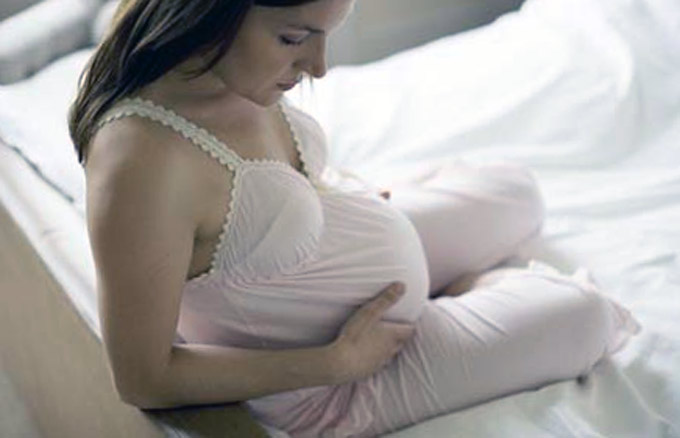Anxiety and depression during pregnancy and after pregnancy are the focus of this entry in the Psychologist Calgary blog. When I was pregnant with twins a few years ago, the medical professionals who were taking care of me were great in supporting me to take care of my body in order to help my babies grow. However, as a mental health professional, it did strike me that no one ever asked me if I was experiencing any prenatal depression or anxiety.
The topic of mental health is still a tricky one and even medical professionals might shy away from asking about it or choose to concentrate short appointment times on the basics of physical care. However, we are beginning to know more about the sometimes significant impacts of both prenatal and post-partum depression and anxiety and how these conditions can impact both mom and baby.

In several recent studies, results indicated that the majority of women who experienced post-partum depression also experienced prenatal depression. Similarly, post-partum anxiety is often preceded by prenatal anxiety. Learning to care for your mental health during pregnancy could reduce the risk of experiencing depression or anxiety once your baby arrives so that you may more fully embrace the joy (and chaos) that a baby brings to your life.
Depression:
Depression during pregnancy (whether pre-existing or new) can increase the challenges experienced during this time. Depression has been shown to be related to to difficulties in sleep, immune system disruption, and physical and social difficulties during pregnancy or after the baby is born. Women experiencing depression tend to interact with their child less often and tend to feel higher levels of disconnection from their newborn and/or partner.
Those women who experience depression while pregnant are more likely to experience it after the baby is born. Post-partum depression (PPD) tends to occur within three to six months after birth but can also be seen up to a year after birth.
Anxiety:
It’s normal to feel a slight rise in stress when you prepare for a big change – and pregnancy and childbirth are, of course, an example of a big change. Pregnant women might worry about the health of their unborn child, the actual birthing process, beginning or extending the experience of being a parent, and so much more. Sometimes, these normal worries and thoughts turn into anxiety and sometimes this anxiety begins to affect you in a negative way. Existing concerns and sources of stress (e.g. related to money, relationships, job stress, or a pre-existing mental or physical illness) may also trigger higher levels of anxiety when paired with pregnancy.
Up to 16 percent of women struggle with a level of anxiety that negatively affects their functioning during pregnancy or during the postpartum period. The higher levels of anxiety tend to be seen in women who have had a difficult pregnancy or who might have had a challenging experience previously. The experience of anxiety can increase levels of fatigue, stress, and generally decrease optimal functioning. It might also affect the quality or frequency of interactions with your baby when he/she is born.
People often will look for information to become as prepared as possible for the process of childbirth and parenting. This can often be useful as it can normalize new and sometimes frightening experiences. One suggestion for managing both prenatal and post-partum anxiety is to connect with other mothers and fathers to hear and share stories.
There is another side to information-seeking. The information we find on the internet or hear through well-meaning friends or family may also increase anxiety. It is important to remember to connect with people that you trust and confirm information you receive through professionals, if appropriate.
What can I do for my mental health while pregnant?
There are several options for managing depression and anxiety during pregnancy. One option is medication, you will want to discuss this with your family doctor or other professional as some of them are not recommended while you are pregnant.
There are also preventative, complementary and alternative options for managing mental health concerns during pregnancy. First, exercise has been shown to moderate the risk of depression in both pregnancy and post-partum. The exercise does not have to be intensive – just enough to get your heart pumping and your blood flowing. In general, a lack of exercise while pregnant can increase your risk of depressive symptoms as well as increase fatigue levels.
A second way to manage your mental health during pregnancy is sleep. If you are struggling with sleep, a common intervention is to wake up at the same time every day and then only go to bed at night when you feel sleepy.
Third, social support (whether from family, friends, coworkers, or others) can be vital both during pregnancy and after your baby is born. Other parents might be able empathize with the challenges and identify with the joy. Good friends and family can lend an ear, accompany you to appointments, or watch your baby while you take a shower.
Finally, stress management is always important but can be even more important during major life shifts such as pregnancy and parenting.It could be as simple as looking out the window while at work for ten minutes and enjoying the sights, listening to your favourite song while riding the C-Train, sending a message to a friend telling them you are thinking of them, or taking a walk on your lunch break. Find what works for you and incorporate relaxation into your daily schedule.
